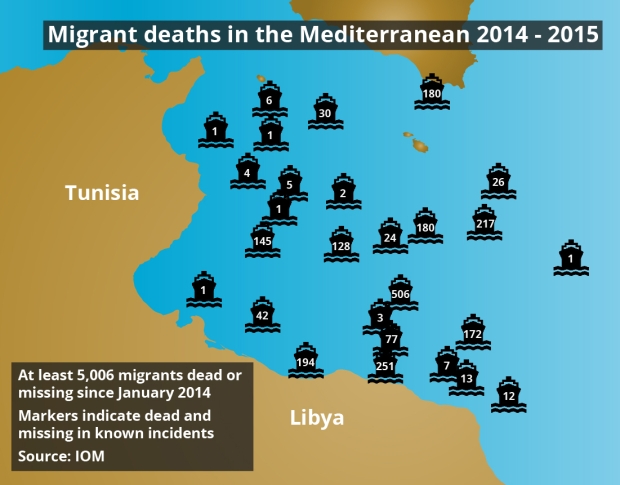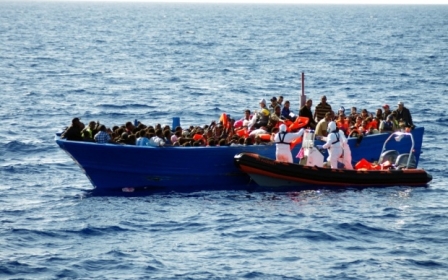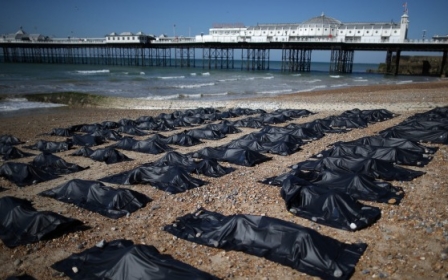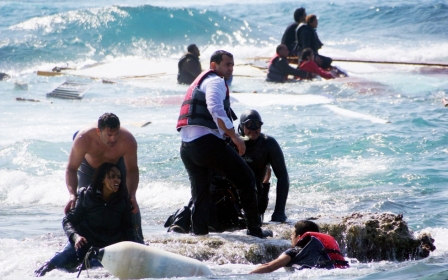UK boosts contribution to sea rescues ahead of EU summit
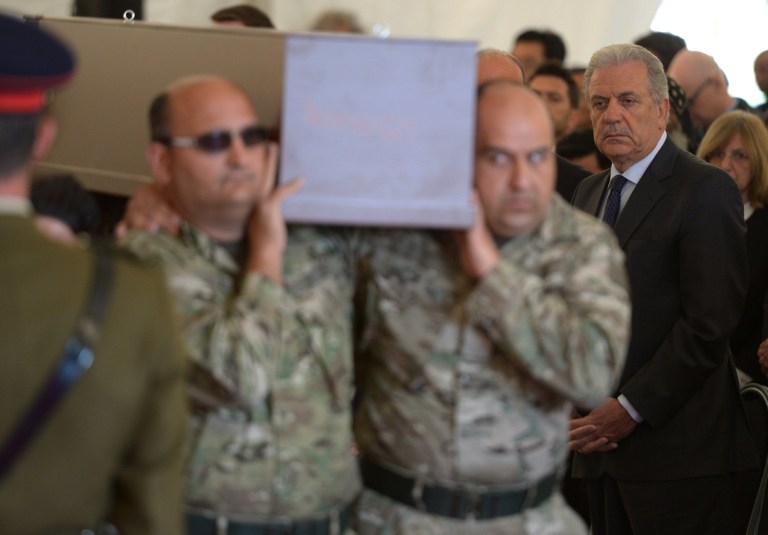
Top-level European leaders are meeting in Brussels today in their second emergency summit in a week to discuss the growing migrant crisis.
The meeting comes as the bodies of some of the people drowned recently in the Mediterranean were buried in Malta where they had washed up.
Twenty-four plain wooden coffins were laid out on the floor of a makeshift tent on the roof of a hospital in Malta – the group was among around 800 people feared to have died when a boat capsized off the Libyan coast last week.
The sombre interfaith ceremony was attended by asylum seekers and EU officials, including Dimitris Avramopoulos, the union’s commissioner on migration.
After the funeral, Avramopoulos will travel to Brussels to attend an EU summit on tackling the situation in the Mediterranean, where over 1,600 people are already feared to have died so far this year - a more than a 50-fold increase on the same period in 2014.
EU leaders are under pressure from campaigners and aid groups to deliver effective solutions to the crisis, while responding to concerns at home surrounding how increased search and rescue missions would be funded.
In the wake of the October 2013 Lampedusa disaster, when more than 300 people were killed in a shipwreck off the tiny Italian island, the EU’s Home Affairs Commissioner promised a “truly European response” to the crisis.
However, Mare Nostrum, launched the following month, was almost entirely funded by Italy, which as a coastal state has greater responsibilities than other EU countries to rescue ships in distress off its coast, according to international law.
That year-long mission was not replaced with a comparable European programme when it expired in late 2014.
Now, according to a draft summit statement leaked on Wednesday night, EU member states are making it their “immediate priority” to prevent more people from dying at sea.
Double funding for sea and land patrols
The European Council, the body that defines the EU’s overall political direction, pledged in the draft statement to double the financial resources given to two border patrol missions, known as Operation Triton and Operation Poseidon.
Operation Triton is a Mediterranean sea patrol mission launched in 2014, but with only a third of the monthly budget of Mare Nostrum.
Doubling its centrally-funded budget will bring it up to two thirds of the level of the Italian-led programme, which saved more than 150,000 lives over the course of the year.
Triton has so far saved around 8,500 people since its launch in late 2014, around a third of the total number of people rescued. The remainder have been swept up by the Italian coastguard and by commercial vessels.
The operation relies on voluntary contributions from European nations, including non-EU member states.
The UK, which has so far pledged five personnel to the overall mission, said on Thursday that it would scale up its contribution.
UK Prime Minister David Cameron said he would make available three ships and two helicopters, but only “under the right conditions”.
“People that we pick up and deal with [must be] taken to the nearest safe country, most likely Italy, and not have immediate recourse to claim asylum in the UK.”
According to the statement, the funding for Operation Poseidon will also be doubled.
Operation Poseidon is a mainly land-based control mission based on Europe’s eastern borders with Turkey and Albania. It also patrols the much less frequently used sea route between Greece and Turkey.
The operation’s aim is to co-ordinate border patrols “to tackle the problem of illegal immigration” across the EU’s south-eastern borders.
EU members have come under criticism for shutting off their land borders while failing to ensure that there is a safe way to reach Europe by sea – Spain has recently come under fire from the UN over its attempts to cut off land access to two Spanish enclaves in Morocco.
The statement also includes a pledge to “increase…search and rescue possibilities within the mandate of Frontex,” the EU agency that co-ordinates joint border control operations.
Frontex has a mandate to carry out border surveillance and control but a spokesperson told MEE on Monday that it is “not a humanitarian mission”.
Though the draft statement does not include a pledge to expand Frontex’s mandate to scale up the humanitarian aspect of its operations, the agency has already said it is “ready” to implement the initial decisions taken by European leaders after Thursday's emergency summit.
The body’s executive director, Fabrice Leggeri, said on Monday that he would increase air surveillance off the coasts of Italy and Malta.
Also included in the draft statement is an agreement to launch a joint military operation to “identify, capture and destroy vessels before they are used by traffickers,” most of whom set off from the northern coast of war-torn Libya.
New MEE newsletter: Jerusalem Dispatch
Sign up to get the latest insights and analysis on Israel-Palestine, alongside Turkey Unpacked and other MEE newsletters
Middle East Eye delivers independent and unrivalled coverage and analysis of the Middle East, North Africa and beyond. To learn more about republishing this content and the associated fees, please fill out this form. More about MEE can be found here.


